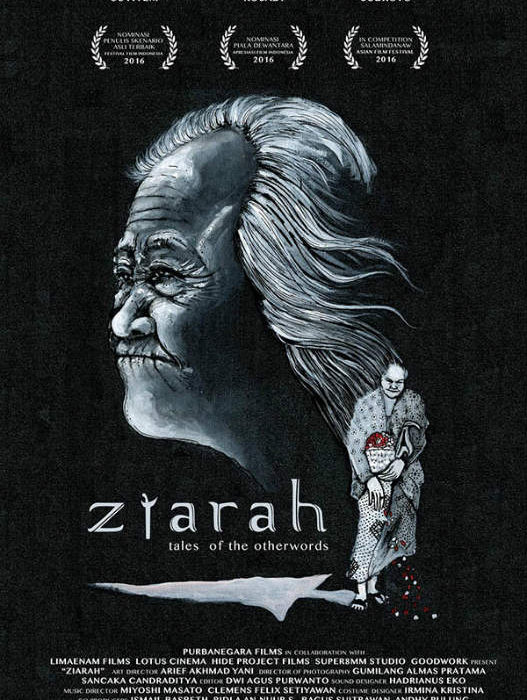‘Ziarah: Tales of the Otherwords’ film review: seeking the truth, finding peace
The 13th Indonesian Film Festival (IFF) is on this weekend in Melbourne.
 As the most prominent celebration of Indonesian cinema in Australia, IFF is screening a selection of eclectic films, including Ziarah: Tales of the Otherwords (2017). Full information about all six films – plus how to book tickets – is available on the IFF Australia website.
As the most prominent celebration of Indonesian cinema in Australia, IFF is screening a selection of eclectic films, including Ziarah: Tales of the Otherwords (2017). Full information about all six films – plus how to book tickets – is available on the IFF Australia website.
Ziarah is preoccupied with notions of death, history, legacy and stories, and not unduly so. From the beginning, the film is dominated by imagery of cemeteries and dead bodies, talk of old age, and recounts of past events.
Characters are always telling stories of the land and the people on it, giving their versions of decades-old events and gradually building an impression of a broader historical truth that in this case becomes very personal.
Set in rural Java, the film is subdued and introspective, with a slow place, meditative soundscape and numerous long takes. Combined with unobtrusive music and a generally static camera setup, this makes for a film that often feels more like a documentary than a work of fiction. This could have even been a deliberate choice to enhance verisimilitude given the film’s underlying themes.
At one point, a passing extra glances deliberately into the camera, which aside from being a highly amusing error only strengthens the documentary-style tone the film evokes – it’s as if we are onlookers to a very real series of events.
Mbah Sri (Ponco Sutiyem) sets out on an impressive solo journey for one of her age, to find the grave of her husband who was lost after the war. The character’s visible age and fragility – she’s 92 years old – reinforce the notion of a far-off history pushing through into the present.
When asking where their graves are, don’t look for the gravestones. Look at the earth that is freed by their blood.
Often shot with sparse dialogue, Mbah Sri is accompanied by a kind of unspoken melancholy along her journey, upping the emotional stakes and also helping the audience relish in her youthful zeal to find answers to age-old questions so late in life.
Mbah Sri’s journey is paralleled by her grandson’s (Rukman Rosadi) troubled attempts to plan, buy the land for and build a house for himself and his fiancé. The two storylines interweave in a way that further emphasises the struggles of coming to terms with the past by showing the family’s effort to move on and look to the future.
Short filmmaker B.W. Purba Negara’s first foray into feature-length directing is contemplative and deliberate, and lets the truth at the heart of the story come to the fore without any extraneous directorial touches.
The film also features some pleasing Indonesian countryside to accompany the appropriately rural, low-key tone. The English subtitles, too, will be a blessing for those with little knowledge of mumbled Javanese.
A review from the Jakarta Post described the film as a metaphor for Indonesia’s ahistorical society, but it works on several levels: as a quiet depiction of life in the villages, a personal quest for solace and self-fulfilment, or a treatise on the enduring legacy of conflict and loss.
Don’t forget to select a film (or three) to watch this weekend at IFF in Melbourne. Plus, coming soon on the AIYA Blog: reviews for Pengabdi Setan and Marlina the Murderer in Four Acts.

